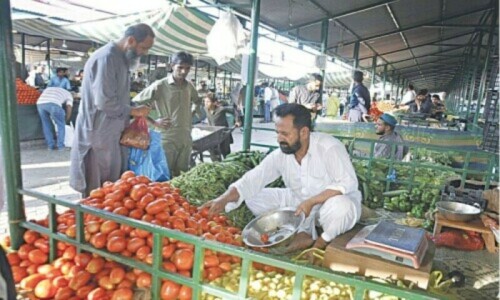ISLAMABAD: After two consecutive increases, the prices of petrol and high speed diesel (HSD) are estimated to decline by about Rs3 and Rs8.50 per litre, respectively, from Aug 1 for the next fortnight, mainly because of lower international market and import premiums.
Informed sources said the prices of these major products had decreased in the international market by about $2 and $3 per barrel, respectively, in the last fortnight.
Depending on final calculation and existing tax rates, the price of petrol is projected to fall by Rs2.90 and that of HSD by Rs8.50 per litre.
Officials said the average price of petrol had dropped in the international market to $87.50 from $89.50 per barrel. HSD also declined to $94 from about $96.93 in the last fortnight.
Relief likely to be Rs2.90 for petrol, Rs8.50 for high-speed diesel
During the current fortnight, the import premium on both products has also declined. It dropped to $8.80 from $9 on petrol and to $5 from $6.50 per barrel on HSD. On the other hand, the exchange rate movement remained range bound during the fortnight.
The government has jacked up maximum limit of petroleum levy to Rs70 per litre in the current Finance Bill to collect Rs1.28 trillion in the next fiscal year against Rs960bn collected during the last fiscal year, almost Rs91bn higher than the Rs869bn budget target.
The ex-depot petrol price currently stands at Rs275.60 and that of HSD at Rs284 per litre. At new rates, the petrol would still remain above Rs272 while HSD rate would get close to Rs275 per litre, provided the government does not increase the rate of petroleum levy.
Petrol is mostly used in private transport, small vehicles, rickshaws and two-wheelers and has a direct bearing on the budget of middle- and lower-middle classes. On the other hand, most of the transport sector runs on HSD. Its price is considered inflationary as it is mostly used in heavy transport vehicles such as trains, trucks, buses, tractors, tube-wells and threshers and particularly impacts the prices of vegetables and other eatables.
On the other hand, a drop in petroleum prices is seldom reflected in fares and prices of essential commodities.
The petrol and HSD prices had increased by Rs7.45 and Rs9.56 per litre June 30. This was followed by Rs9.99 and Rs6.18 per litre increase in prices of petrol and HSD, respectively, on July 16. As such, petrol and diesel rates cumulatively went up by Rs17.44 and Rs15.74 per litre, respectively during the current month.
Between May 1 and June 15, the prices of both products had reduced by about Rs35 and Rs22 per litre, respectively.
The government charges about Rs78 per litre tax on both petrol and HSD. Although, GST is zero on all the petroleum products, the government charges Rs60 per litre PDL on both products that normally impacts the masses.
Published in Dawn, July 27th, 2024














































